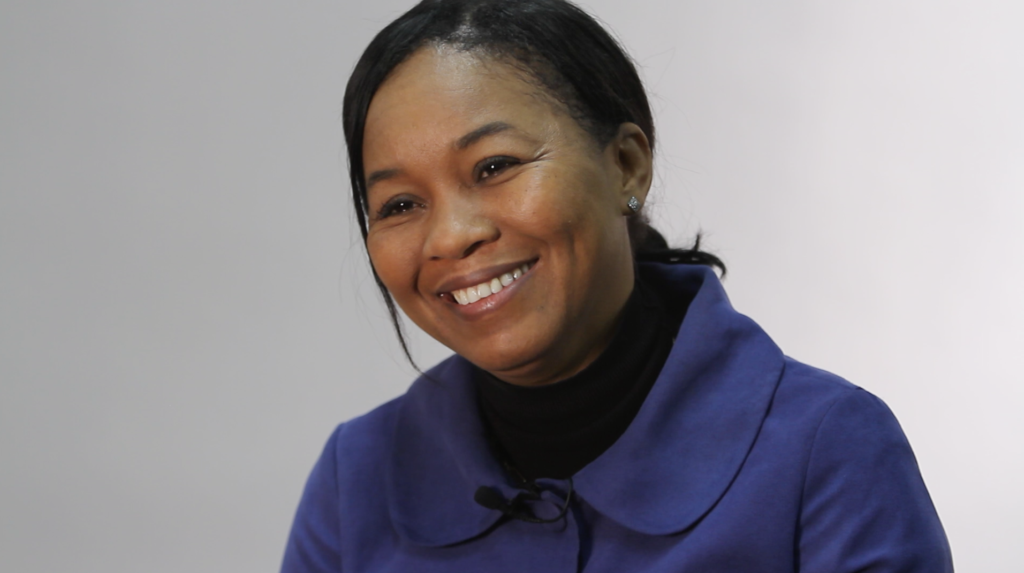The Mission
Theresa’s House is an orphanage located in Kinshasa, an African city in the Democratic Republic of Congo. Our ministry provides shelter, food and education for children and houses up to 22 kids each year.
The Introduction
My name is Theresa Kashale, and I am the founder of Theresa’s House. Today, I am a teacher in Sioux Falls, and my family has lived here since 1995. I was born in the Democratic Republic of Congo, but at the age of 15, I was forced into an arranged marriage and had to move to neighboring country Burundi with my then husband, who was working at the Embassy of Congo there. In 1993, we experienced an extreme genocide in Rwanda and Burundi. Children, elderly and neighbors were being killed, and a civil war had begun. But while living through that, the United States granted my family asylum, and I moved to Sioux Falls, South Dakota, with my husband and four young children.

When we moved in April of 1995 to Sioux Falls, there was snow up to our windows. My kids were so excited to see snow for the first time, saying, “Mom! Look at all the sugar!” But it was a stressful, difficult transition. I did not speak any English, and we were still healing from the trauma of the war.
But we worked hard, and soon, my kids were in school, and I found a job working as a housekeeper. Over my lunch breaks, I would visit the public library to read picture books to help me learn English. I then had a tutor come to our home, who after a year of working together, encouraged me to take English classes. I began at Southeast Tech and then graduated from the University of Sioux Falls in 2004. I also got a masters degree in reading and am just now finishing up my PhD.
Today, all my 3 boys are college graduates, and my youngest is a junior in high school who has aspirations to go into the medical field.
In 2005, after I had just finished my undergrad, I felt something missing within me. I hadn’t seen my parents in 20 years, and I missed them terribly. I would’ve given anything just to give my mother a hug, and I was craving reconciliation with my father who had forced me into the arranged marriage. Even though I knew God had healed me through prayer, I knew I still needed to visit home.
I talked to my sister over the phone, and she had told me how much unrest still existed in the Congo and urged me to stay in Sioux Falls. But she had also sent me photos of orphaned kids in the streets of my native city of Kinshasa, and it was absolutely devastating. These kids were digging through the garbage with nothing to eat, no one to care for them, no shoes or decent clothes. Some of them as young as 5 years old were selling their bodies just for a meal. Through these pictures I knew, I needed to do something.
And so I did.
The Organization
I had a lot of pushback when I told my family I wanted to start an orphanage. My brother warned me that the plight was too big, but out of the 63 million people living in the Congo, four million children were orphaned and without a family. Six million people had died from war and disease. I had to start somewhere.
So I bought a ticket to fly home. After that, $7,000 was donated to me within days to help start this orphanage. Friends at my church put money together, students at the school I was teaching gave money and school supplies, and the day before I left, I had friends calling and dropping by every 20 minutes to offer money. I said to God in that moment, “Wow, you really want me to do this, don’t you.”
When I finally came home to the Congo, there were so many mixed feelings, but it was a wonderful reconciliation with my family, and we all worked together to find a space for the orphanage. We found a building with four bedrooms, and people in the neighborhood worked with us to paint and restore the home. After that, we set out to find the children. Unfortunately, this was the easy part. Malnourished children were everywhere, digging for food in the garbages and seeking refuge. We took in 10 girls to start.
When I came back to the United States, it wasn’t long before we needed more money for the orphanage. I reached out to my local pastor in fear, and he asked me to tell my story at my church, to talk about the children. So I did, and it was very emotional. Immediately, people just started writing checks, and within that one service, they put together $10,000 for the children.
To date, we’ve never run out of money for the orphanage. Through God’s grace and prayer, donations have always come in, and people in the Congo have even begun donating food there. God has shown me how to be patient, and through this work, my faith has grown so much.
In total, we have helped over 60 children. The presence of the orphanage in the community has also inspired hope among the neighbors and the extended family of these children. I visit every summer, bringing back backpacks and school supplies for the kids. I also will bring missionaries along with me who will come to teach for two weeks. Otherwise, our teachers at the orphanage teach our kids how to sew their own clothing, budget financially, how to plant and grow vegetables, and we also have a chicken coop our kids tend to regularly.
Here in Sioux Falls, my work is just as important. Along with fundraising, I raise cultural awareness about all that is happening in my native country, and I also work with immigrant families. We recently started a community garden, and my husband taught them how to can tomatoes. Last year, we had 1,500 cans of tomatoes for 50 local families.
I know I cannot live in the Congo and with the children at the orphanage, because my family is here. But I talk to the kids and employees there almost every day. There are just like my family, too.
“The presence of the orphanage in the community has also inspired hope among the neighbors and the extended family of these children.”
The One
I will never forget the very first girl we found to take to our orphanage. We had just completed the space and hired staff, and as soon as we set out to find children, we found Nsimba. She was six years old and digging for crumbs in the garbage. She told me she had a mom, and that she, too, was out somewhere looking for food. I told Nsimba that I had food and shelter for them just a few blocks away, and by noon that day, she and her sister and her mom came to stay with us. That was 10 years ago, and today, Nsimba is 16 years old and a junior in high school. Her sister, Charlene, graduated from high school two years ego and got married this year.
We’ve had so many other children who have graduated high school or gone on to get married and have children. Some of our children have even come back to help at the orphanage as an adult.


